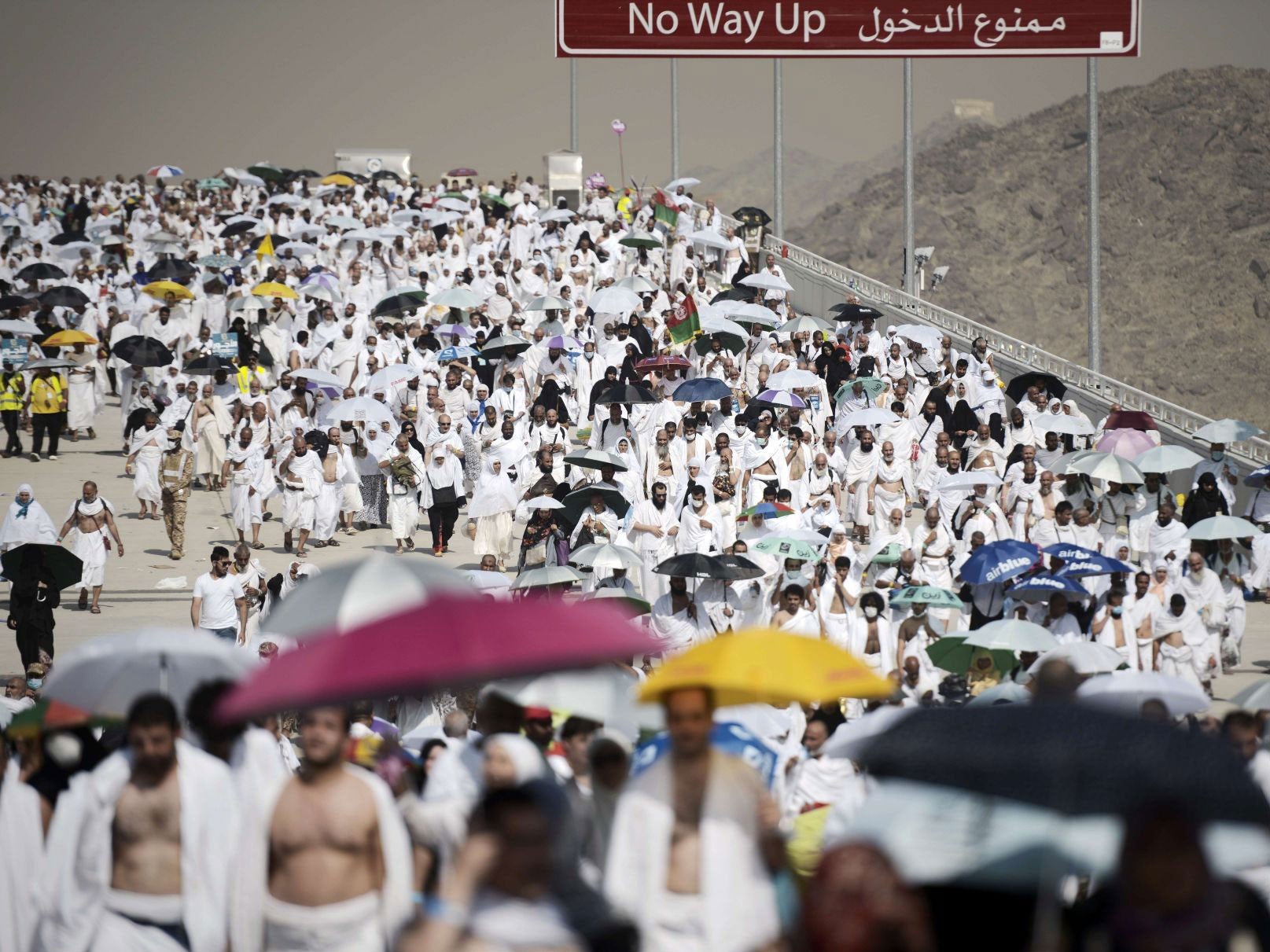Racist claims that the Hajj tragedy was karma for Muslims are more widespread than you might think

Having just read about the tragic death of 700 pilgrims in the Mina valley, I encountered an acquaintance in the stairwell.
“Did you hear about the tragedy in Mecca?” I asked.
“No – what happened?”
“700 dead,” I said. “Some sort of stampede.”
“Are they Muslim?”
“Yes.”
“Good.”
I was stunned. Not just by the sentiment, but by her complete lack of equivocation. There was no hesitation. No moment of reflection. No gap. What made it all the more shocking is that my acquaintance is, to all intents and purposes, a good woman. An immigrant to the UK of several decades. A kindly widow in her early sixties. Generous. Good humoured. A bit sentimental at times. One might say she laughs and cries easily. Just not for Muslims, apparently.
Not quite sure how to confront her, I quickly made an excuse and retreated to gather my thoughts. But I felt like a cop-out. Like I might be liberal version of Donald Trump, who a few days earlier had conspicuously failed to correct an Islamophobe at a campaign event.
My emerging guilt was quickly overtaken by a more troubling realisation: that my dear acquaintance is surely not alone in her position, that there are almost certainly many across this nation, and middle America, and elsewhere in the West, who secretly feel, and privately express, that the deaths of these religious pilgrims represents some sort of comeuppance for Islam. After all, it’s their brethren cutting off heads in Iraq and Syria, planning and committing atrocities across Europe, destroying the treasures of antiquity, etc, etc. Surely it’s some kind of karma?
At face value of course, the suggestion is manifest nonsense. Natural or human-made disasters pay no heed to race, creed or colour. From the Irish Potato Famine to the sinking of the Titanic, from World War II to Hurricane Katrina, from heat waves and tsunamis to acts of terrorism or collateral damage, just about anyone can die, at any time. Death does not discriminate. And neither does plain old bad luck. Hell, we know this in our own lives. Just ask someone recently diagnosed with a terminal illness, or a paralysed passenger in a car crash. Or the victim of a hate crime. Did they all have it coming? I stubbed my toe this morning. Was that payback for eating at McDonalds last week? Well, let’s not take it too far.
The Saudi minister responsible for the hajj, Iyad Madani, pre-emptively defending his department against the inevitable charge of mismanagement, stated that: “All precautions were taken to prevent such an incident, but this is God's will. Caution isn't stronger than fate.” Bizarrely, in regard to the tragedy, this may echo the views of the fundamentalist Christian right, a self-serving instance of religious dogma dovetailing with everyday bigotry.
But none of this gets to the heart of my acquaintance’s comments. Sometime soon, I’m going to have to confront her, and I know what I’m going to say. I’m not going to philosophise about karma, or history, or politics, or the media. Nor am I going to quote Pope Francis, who today told the US congress that: “To imitate the hatred and violence of tyrants and murderers is the best way to take their place.”
Nah, that would be too heavy handed. Instead I’m going to confess that, if I am honest with myself, when I first read of the deaths of those pilgrims, there was a second, a moment, a flash, where it occurred to me that perhaps this was an instance of karma. That those religious zealots, blindly following a moribund faith, deserved their fate.
Sometimes, in a world of bewildering violence and sudden death, the simplest, dumbest solutions make a kind of sense. Luckily, bigoted thoughts are like bigoted people – you can turn away from them. And that’s when the real thinking starts.

Join our commenting forum
Join thought-provoking conversations, follow other Independent readers and see their replies